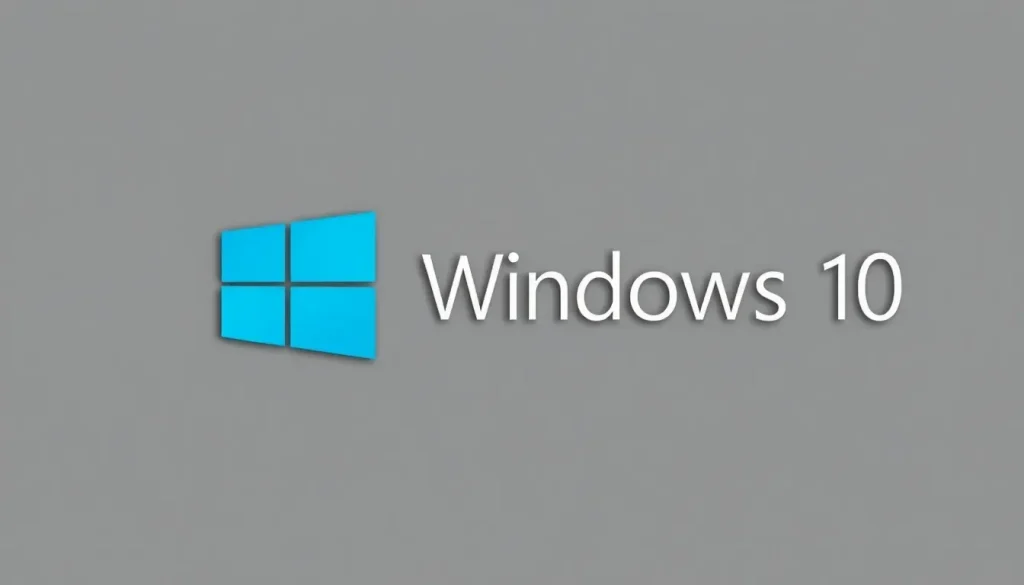Microsoft offers EU users free year of Windows 10 security updates

In a significant move, Microsoft has announced that users within the European Economic Area (EEA) will gain complimentary access to an extended support updates (ESU) program for Windows 10. This decision provides users with an additional year to consider upgrading to Windows 11 or exploring alternative operating systems. With this announcement, Microsoft aims to address the concerns of many users who are still reliant on Windows 10.
The decision comes on the heels of feedback from Euroconsumers, a prominent international consumer advocacy organization. Microsoft has agreed to extend the end-of-life timeline for Windows 10 within the EEA, offering free security updates until October 14, 2026. This encompasses all 27 EU member states, as well as Iceland, Liechtenstein, and Norway. However, it's worth noting that the UK is excluded from this initiative.
Understanding the Windows 10 Extended Support Updates
Microsoft's ESU program is designed to extend the security lifecycle of Windows 10 for users who may not be ready or able to transition to Windows 11. The updates will encompass critical security patches that help protect devices from vulnerabilities and threats.
Previously, users had limited options for accessing these updates, which included:
- Paying a fee of $30
- Redeeming 1,000 Microsoft Reward points
- Syncing PC settings to the cloud
This structure raised concerns regarding compliance with the Digital Markets Act (DMA). The revised process now only requires users to authenticate their Microsoft accounts every 60 days to continue receiving updates, simplifying access while adhering to regulatory standards.
Implications for Windows 10 Users
This extended support offers a lifeline for users who have established workflows and systems based on Windows 10. With an estimated 850 million devices currently running this operating system, many individuals and businesses face challenges in upgrading to Windows 11, whether due to hardware limitations or software dependencies.
According to Euroconsumers, around 22% of users continue to rely on older devices that are still functional but incompatible with Windows 11. This highlights the importance of Microsoft's decision to extend support, as it aligns with broader sustainability goals by preventing premature obsolescence of hardware.
Future of Windows 10 and Transitioning to Windows 11
As Microsoft encourages users to transition to Windows 11, there are several factors to consider:
- Compatibility: Ensure your hardware meets the minimum requirements for Windows 11.
- Software Availability: Check that essential applications are compatible with Windows 11.
- Learning Curve: Familiarize yourself with the new interface and features of Windows 11.
The additional year of support allows users time to evaluate their options and make informed decisions regarding their operating system. For many, this period will be crucial for planning upgrades and ensuring a smooth transition.
Challenges Ahead for Microsoft
Despite the positive feedback surrounding the extension of support, Euroconsumers has expressed that these short-term measures may not be adequate for a product as widely used as Windows 10. The organization is currently in discussions with Microsoft to explore avenues for further extending protection for devices beyond the newly established deadline.
This ongoing dialogue reflects the challenges Microsoft faces in balancing business objectives with consumer needs and regulatory compliance. The tech giant must navigate these waters carefully to maintain its reputation while adapting to changing market dynamics.
Outlook on Windows 11 and Beyond
The future of Windows 10 continues to be uncertain, especially as Microsoft focuses its resources on Windows 11. This new operating system boasts improved performance, enhanced security features, and a fresh user interface designed for modern computing needs.
As the company continues to innovate, users may wonder about the longevity of Windows 10 support beyond 2026. The following factors are essential to consider:
- Market Trends: The shift towards cloud computing and subscription services may influence future support strategies.
- User Feedback: Microsoft’s responsiveness to consumer needs could shape its decisions regarding legacy operating systems.
- Technological Advancements: New hardware developments could affect the viability of older operating systems in the long term.
As the deadline for end-of-life approaches, users are encouraged to stay informed about updates and potential changes to the support landscape. This is particularly vital for businesses that depend on seamless operations and data security.
For those looking to learn more about this critical development, consider watching this insightful video that details the recent changes regarding Windows 10’s extended support:
Conclusion: The Road Ahead for Windows Users
The extension of Windows 10 security updates offers a reprieve for users navigating the transition to Windows 11. With the additional year of support, Microsoft demonstrates its commitment to ensuring users have the necessary resources to adapt. As discussions with Euroconsumers progress, it remains to be seen how Microsoft will address the long-term needs of its extensive user base.
Ultimately, being proactive about system updates and understanding the implications of transitioning to newer operating systems will empower users to make informed decisions in the ever-evolving landscape of technology.




Leave a Reply